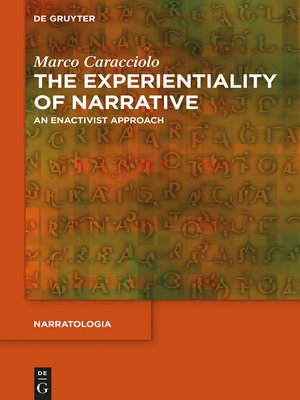
Sign up to save your library
With an OverDrive account, you can save your favorite libraries for at-a-glance information about availability. Find out more about OverDrive accounts.
Find this title in Libby, the library reading app by OverDrive.



Search for a digital library with this title
Title found at these libraries:
| Library Name | Distance |
|---|---|
| Loading... |
Recent developments in cognitive narrative theory have called attention to readers' active participation in making sense of narrative. However, while most psychologically inspired models address interpreters' subpersonal (i.e., unconscious) responses, the experiential level of their engagement with narrative remains relatively undertheorized. Building on theories of experience and embodiment within today's "second-generation" cognitive science, and opening a dialogue with so-called "enactivist" philosophy, this book sets out to explore how narrative experiences arise from the interaction between textual cues and readers' past experiences. Caracciolo's study offers a phenomenologically inspired account of narrative, spanning a wide gamut of responses such as the embodied dynamic of imagining a fictional world, empathetic perspective-taking in relating to characters, and "higher-order" evaluations and interpretations. Only by placing a premium on how such modes of engagement are intertwined in experience, Caracciolo argues, can we do justice to narrative's psychological and existential impact on our lives. These insights are illustrated through close readings of literary texts ranging from Émile Zola's Germinal to José Saramago's Blindness.







